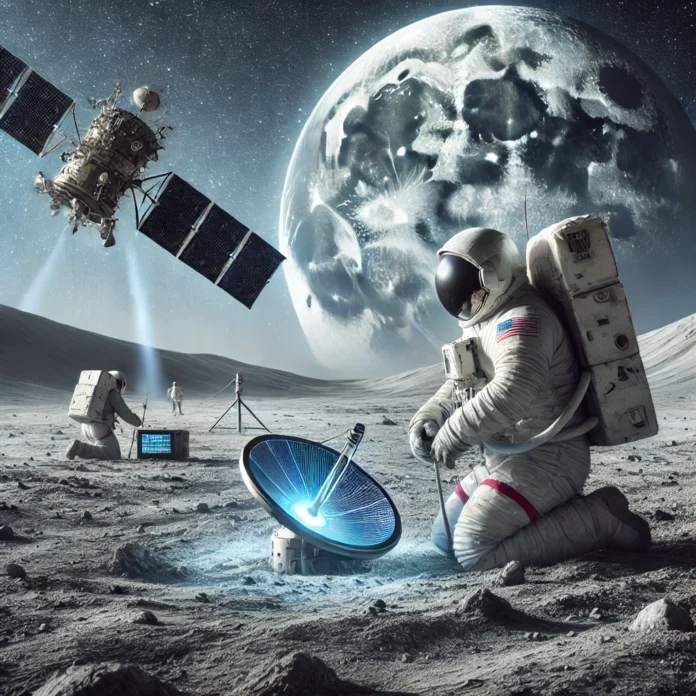What Time is it on the Moon? Lunar GPS Needs to Know
The race to establish a sustainable human presence on the Moon has sparked a new challenge: keeping time on the Moon. As countries like the U.S., China, and others ramp up their lunar missions, the need for a consistent timekeeping system is more pressing than ever. Without such a system, coordinated activities between different space agencies and future lunar bases would be chaotic. Lunar GPS (Global Positioning System) is set to play a crucial role in overcoming this challenge, and developing a stable method to measure “Moon Time” is at the heart of this effort.
Why is Timekeeping on the Moon Different?
Timekeeping on the Moon presents unique challenges that differ from Earth. Due to the Moon’s weaker gravity, clocks on the Moon would tick faster than clocks on Earth by about 56 milliseconds per day. While this difference might seem minuscule, over time, the cumulative effect becomes significant, especially when precision is required for navigation, spacecraft landings, and future lunar colonies.
The Role of a Lunar GPS System
Lunar GPS, similar to the Earth-based GPS, will rely on satellites orbiting the Moon and atomic clocks placed on the lunar surface. These will provide accurate navigation and timekeeping for spacecraft and human missions. One proposal is to establish a “Master Moon Time”, analogous to Earth’s Coordinated Universal Time (UTC). This system would allow space agencies to synchronize their missions with a unified time standard.
Challenges in Synchronizing Lunar Time
Establishing a consistent time on the Moon is not just about navigation. It’s also a matter of synchronizing multiple lunar missions conducted by various space agencies, such as NASA, the European Space Agency (ESA), and China. Without a common lunar time standard, these missions could face critical errors, especially as human presence on the Moon grows. Learn about Japan’s efforts in space technology and the future of satellite innovations.
Technological Innovations for Lunar Timekeeping
To address these challenges, atomic clocks designed specifically for lunar conditions are being developed. These high-precision clocks will play a critical role in maintaining time on the Moon, ensuring synchronization with spacecraft and enabling real-time decision-making. Along with these atomic clocks, a network of lunar satellites would provide navigation support, enabling future lunar missions to achieve precision landings within a few meters of their intended target. Learn more about NASA’s ambitions for future Moon and Mars missions.
Implications for Future Space Exploration
The development of a Lunar GPS system and an accurate method for timekeeping on the Moon is not only critical for lunar missions but also has far-reaching implications for space exploration beyond the Moon. With an operational Lunar GPS, Mars missions and other deep-space missions could benefit from similar timekeeping and navigation systems. As space agencies plan more complex missions involving the Moon as a stepping stone to Mars, the importance of synchronized time cannot be overstated.
Why It Matters
As lunar exploration accelerates, ensuring that space agencies have a common time standard will become increasingly important. From landing spacecraft to coordinating lunar base activities, a reliable timekeeping system on the Moon will form the backbone of future lunar and interplanetary missions. Without it, precision navigation and collaboration across multiple agencies would be fraught with errors.
Conclusion: Time on the Moon—A New Frontier
Timekeeping on the Moon is more than just a technical necessity—it represents the next step toward establishing a human presence beyond Earth. The implementation of Lunar GPS and the development of atomic clocks designed for lunar conditions mark a significant leap forward in ensuring that humans can navigate and thrive on the Moon and, eventually, beyond.


